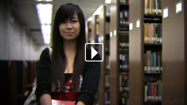Teacher responses to the 2010 release
The following is a list of teacher responses to their "value-added" ratings during the intial release in 2010. See the most recent responses »
The Times gave LAUSD elementary school teachers rated in this database the opportunity to preview their value-added evaluations and publicly respond. Some issues raised by teachers may be addressed in the FAQ. Teachers who have not commented may do so by contacting The Times.
|
|
 Delicious
Delicious
|
 Digg
Digg
|
 Facebook
Facebook
|
 Twitter
Twitter
|





I was an out of classroom teacher during this time. In addition, because I became the Magnet Coordinator during this time period, my name was listed as the classroom teacher for two Magnet School teachers who resigned. It is these two teacher's scores that are reflected on my history. I believe that there are so many factors that affect student acheivement, the least reliable may be the assessment scores from the state. I keep hoping that the future of public education will be successful in spite of the overwhelming obstacles that public school teachers face.
August 23, 2010 at 2:17 p.m.
I am deeply sadden and disappointed that the LA Times plans to publish the names and some sort of value-added performance rating scale of 6,000 teachers in LAUSD. Until one week ago, I had never even heard that this statistical research was being performed by the LA Times. I am not sure of the accuracy or validity of this research. For example, my Language Arts teaching skills far out weigh my math teaching skills --yet that is not what my value-added test scores show. I also know that I work well with students whose second language is English and that their learning curve is not alway consistent or reliable on a standardized test. In addition, the emotional and social development of primary students is as equally important as their academics. I spend a lot of time and energy on hopefully developing my students' character to be good citizens, caring, thoughtful, compassionate, fair, and hard-working which is not reflected in this value-added performance. So I do not understand the LA Times purpose in publishing performance ratings on individual teachers. I don't think this is the way to improve education or to encourage and support teachers in the classroom.
I do know that there are some teachers who do not belong in this profession, and that the school community needs to have more power to step in fairly and objectively dismiss those teachers. However, I don't think publishing these value-added performance scores will lead to anything positive. Parents are intelligent enough to know they want a teacher who creates a fun, challenging, positive learning environment and not a teacher who stressed out about testing scores and only focuses on the five students who will give the school a higher API score.
As a teacher in LAUSD over the last 20 some years, I have been present and engaged with my students to guide them in their emotional, social, and academic growth. I have also had to protect my elementary students from the media and let them know that they are worth much more than their test scores show.
This year I will do my best to keep my chin up and be there for my second grade students. Sincerely, Katie Morrison
August 23, 2010 at 9:36 a.m.
I could have told you where I would have ranked in your standards of measure without the use of your database. As responsible educators, the teachers at my school site take the time to analyze the CST scores of their students every year. We take the results of our analysis and use them to help improve our strategies and directions in teaching. I have many color coded sheets that show the details of the generalized results you are releasing to the public. Out of respect for the privacy of my students, I will not go into the details of their scores. Also, I would have been able to tell you that I would have measured low in a system that measures a teacher’s effectiveness by looking only at the results of standardized testing, for I am not your standard teacher. I am a teacher that follows a specific educational philosophy that focuses on the needs of the individual student. In addition, I have certain strengths in my teaching style that has encouraged the administration of my school to assign students with specific educational needs to my classroom. Again, out of respect to the privacy of my students, I will not elaborate on the detail of these needs.
To put this series of articles into perspective, I approached them as an assignment that was turned in by a student. My comments on the writing would be as follows:
Good start and interesting topic. I encourage you to ask yourself the following questions as you continue on this assignment. What is your main purpose? Can you isolate your specific argument? Clarify if you are for or against standardized testing? Have you presented a fair and balanced representation of the populations discussed? Are all groups of students, families of students, LAUSD, teacher unions, administrators, and all types of teachers realistically depicted? Remember, generalization can be a lazy approach to skirting further research. What do you propose as a solution to the problems you have brought to light? Like I said, good start, but this writing piece is clearly incomplete.
Personally, I can say that this data base shows only one faction of what can be used to determine my effectiveness as a teacher. Now that you have started on this path, the responsible thing to do would be to continue educating the public on the remaining elements that make effective teachers. For example, make-up of student populations in a classroom, impact of language, strategies of teaching, and those elements of which neither teachers nor students can control that might impact their performance on a standardized test like the design of standardized tests, amount of administrative support, and demands in the home of students.
I would also encourage you to take responsibility of educating the public on the method used to find an average score for teachers. I may only rank as “less effective”, but I do teach my students how to find the average (or mean) of a group of numbers every year. It’s a standard. However, within this lesson, I make sure to depict how the presence of a few extreme numbers (outliers) can skew the process and give a misleading result. By doing so, I hope to promote critical questioning of statistics and responsible reporting of data among my students.
To the members of the public that are looking at these results, I will not make excuses for being labeled a “less effective” teacher. I don’t think this situation warrants any excuses. I stand by the choices I have made in my classroom. Like I tell my students who have received lower grades on class tests, a low score is only the latest starting point on which you must improve. Having ranked as less effective will only help motivate me to continue to strive to improve as a teacher. But, even if I would have ranked “most effective”, I would have reached the same conclusion, for I believe that a teacher can always find areas to improve. However, if it means being called less effective in order for my students to receive the individualized attention they need in my classroom, I am willing to stick with the label. It is a small sacrifice to make in order to help my students gain sturdy educational foundation to build for the rest of their lives. Besides, name calling never amounts to much whether it takes place in elementary school classroom or within the pages of a newspaper.
To the authors of the article, you taken it upon yourself to help evaluate teachers and bring attention to the results and impact of standardized testing. In doing so, you found some problems in the educational system. Specifically, you have found me not meeting the standards of teaching. I thank you for this and ask you for suggestions to help improve the test scores of my students. Here are some of the strategies I have already tried with my students:
• At least 100 minutes of instruction time a week dedicated to test-taking strategies
• Volunteering my time to teach after school test-preparation classes for students
• Inviting the families of my students to workshops I designed and lead which are aimed at giving families the tools they need to help support their children for success in their standardized tests
• Analyzing the released CST questions to determine what vocabulary, strategies, and skills my students need in order to have a fair chance at good performance during standardized testing
• Educating my students on the importance of the test in hopes to demystify it and make it a less frightening experience
Obviously these efforts are not effective enough, therefore, what do you suggest? What would be the most effective means of raising students’ test scores? I am always open to suggestions.
August 23, 2010 at 8:43 a.m.
I believe that parents have a right to know how effective teachers are. With that being said my feelings on my "effectiveness" is pretty shocking. I have seen my student's grow into insightful and articulate people. I make sure to incorporate state standards for all subjects and have seen success for many of my low and high performing students. One thing I do feel I am effective at is preparing students on how to apply their skills to real world applications. I have always used test scores and data to adjust my curriculum and instruction. I will say that when students come into a class many grade levels below standard it is hard to help them gain points when we don't have time to "re-teach" skills. Maybe I need to re-evaluate my curriculum and see how to best serve all my students. Better resources and support from the district many also help me be more effective.
August 22, 2010 at 10:45 p.m.
Now let's work developing a similar system for the parents of the children we teach. Too often, we put too much of the blame on one of the stakeholders. Our classrooms continue to grow in numbers and we, as teachers, are getting less and less support and even through all this our scores as a district continue to improve. Let's continue to look for successes in our schools but if you're going to list the names of teachers as "least effective" then let's do the same for the the parents of the children we teach. I wish I could list for you the number of times I have come across a student who needs the most help and parents who refuse to get involved. Look at the history of some of our students that continue to fail and let's hold the parents accountable as well. How many of the kids that fail don't even do their homework even when we've tailored the homework to the specific needs of the students? 9 out of 10 times, if you show me a student who's failing I can show you a parent that doesn't follow through.
August 22, 2010 at 8:57 p.m.
I do think it is valuable for me to reflect on why in my classroom, where critical and creative thinking is extremely important and focused on in my lesson planning, that my students are not making progress on this standarized test. On the other hand, considering the amount of hours I spend planning, evaluating student work and district tests, this is an unwarrented public attack on my teaching abilities. At a time when the district's money is being so mismanaged, and teachers are under more and more pressure, and less resources, it saddens me to think that even the Los Angeles times is not on our side.
August 22, 2010 at 8:53 p.m.
The use of a statistical model (based on the results of a standardized test) to evaluate a teacher's job performance is tempting to use because the computations needed can be quickly spit out by a computer, and the results give a snapshot of how a class performed. The problem is students' performance is based, in part, on factors outside the control of the teacher (e.g. home environment, attendance, etc). Furthermore, a statistical model gives no feedback on how a teacher can improve their job performance. Test scores should be used only as a starting point to assist in evaluating a teacher's strengths and weaknesses, not as an endpoint. A teacher's job performance should be determined by evaluating their teaching methods to ensure they are based on sound teaching principles (e.g. lessons take into account the different modalities of learning), and classroom management (e.g. proper motivation and appropriate discipline). Also,a teacher should be evaluated on their ability to perfect their teaching methods from input received from test scores, collaborating with colleagues, professional development, and advice/guidance given by the school's administration. These evaluation methods (to determine a teacher's job performance) require qualitative analysis which cannot be done by a statistical model.
August 22, 2010 at 6:41 p.m.
The rating does not take into account that I joined LAUSD mid-year in 2003. I took over a class that had been taught for 6 months by at least 6 different substitutes. Nor does it factor in that I came out of the classroom in January of 08 to replace a coordinator that left our school mid-year. LAUSD on record showed that I was the registered classroom teacher, even though I was no longer in the classroom teaching for the final half of 2008. These factors will not show in your research but they should be acknowledged as a factor in your research findings.
August 22, 2010 at 6:13 p.m.
Well, needless to say, I'm happy and relieved to see these scores; but I must add some background here. I am usually a third grade teacher. In the year 2008-2009, I taught second grade. My experience as a third grade teacher helped make for the success reflected by these second grade scores. I really hit hard in areas that I knew were key to my students success and that would prepare them for third grade.
Plus, in my opinion---I felt the test was much easier than it is in third grade. There are so many new skills to learn in third grade compared to second grade. Second grade seemed to be more of a review of first grade skills. How do you account for the difference. Is the third grade test harder? Who has taken a close look at the tests themselves?
Your series of articles is certainly creating controversy. While I believe reform is necessary in education, I fear your reporting has opened a Pandora's Box. Teachers need information, tools, and support. Targeting them by name in a newspaper is degrading and disrespectful to a population of educators who put a lot of heart and soul (not to mention time and money) into a job that is not properly compensated and that every year, increasingly so in public education, presents a whole slue of challenges that go beyond scores on a test.
I am not planning to cancel my LA Times subscription as we've been encouraged to do by our union, but I can certainly understand those who do.
Irma Estrada
August 22, 2010 at 5:18 p.m.
If you move from one grade to the next every year how do show the effectiveness of the teacher over several years if the students are being tested on different standards in each grade level.
August 22, 2010 at 4:42 p.m.